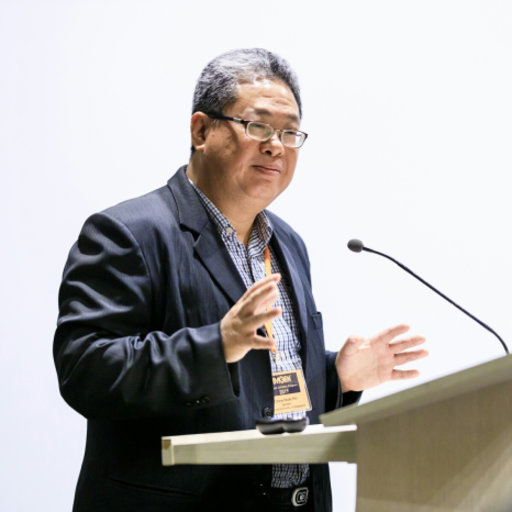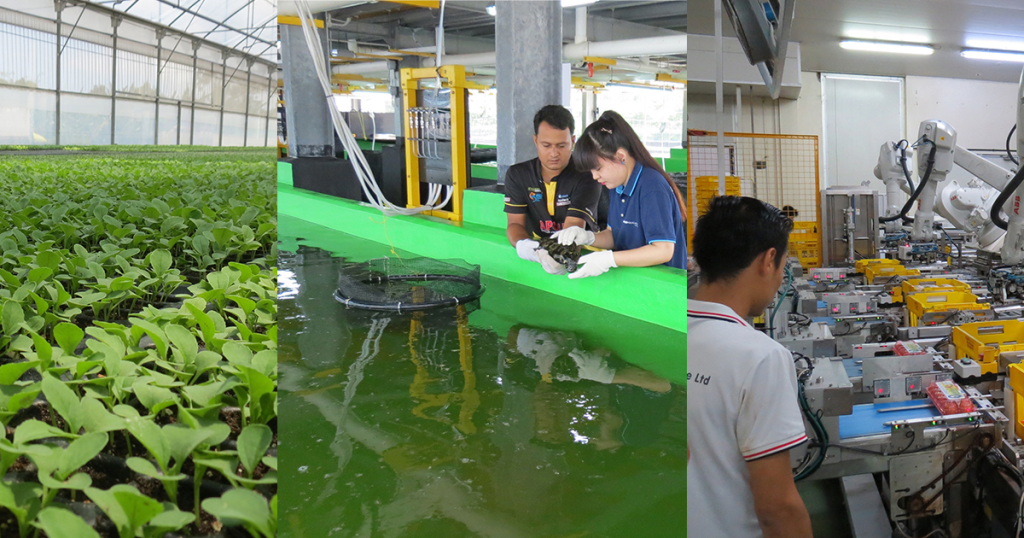As Singaporeans reel from the recent news that Malaysia will stop its imports of chicken to Singapore, many are wondering if we will continue to be able to afford classic Singaporean dishes like chicken rice.
However, recent developments meant that crisis has been averted: Singapore will instead import chicken from other exporters such as Australia, Thailand, and Brazil, and NTUC also announced that its stockpile of frozen chicken is not under threat.
That being said, this episode has certainly led some to wonder: how is Singapore doing in terms of food security? Agriculture and farming, after all, are not industries that many would consider Singapore to be known for.
At the InnovFest 2022 panel event last week, several experts were invited to speak on Singapore’s agritech startups and industry. Here are the key takeaways from the panel discussion:
For agritech startups, universities can be a valuable resource
Tan Wee Kee, co-founder and CEO of NuSoil, lamented that as startups, they are not financially rich. They often do not have the funding and resources to try out everything that has potential.

“For startups, we have to be pragmatic and look at things that are more feasible. We need to prioritise the low hanging fruit. We have to take into consideration, at least resource wise, whether what we plan to do is feasible,” he said.
On this point, Professor Chew Fook Tim, Vice Dean of the National University of Singapore’s Faculty of Science, pointed out that universities are often able to provide the valuable research and resources that startups need in order to fill the gaps.
With the technology often made available to universities, researchers are able to cut costs for startups by enabling them to better predict crop yields, just by comparing the genetics of different seeds available to startups.
Professor Chew therefore encourages agritech startups to partner with universities, seeing it as a win-win solution for all.
“The way things are done now, we plant seeds and only see if our choices were right several years into the future. But with the technology that geneticists have now, we are able to tell the probable yield of different seeds immediately.”
Startups have the potential to solve problems beyond just Singapore
Singapore faces an important challenge with respect to resources. Land and water are scarce, among other factors.
These challenges are neither insurmountable nor unique. Instead, what innovations are developed here can solve not only our own issues of food security, but also the issues of similar cities.
This is important because our local market is small. Melin Lim, Senior Director of Singapore Food Agency, stated bluntly that we startups can “count the number of millions we have and it’s still a single digit, even with tourists moving around”.

Therefore, she encouraged startups to consider how their products and innovations can solve problems beyond just feeding our local population, but also other cities that face similar issues.
At the same time, the panelists also noted that it is important to understand the struggles of startups wanting to scale up. Startups are also businesses driven by profit, and without profit, there is no business to speak of.
Brian Koh, Director at NUS Enterprise, suggested that for this to take place, startups cannot simply promise incremental improvements in their products. Instead, he cited efforts by Professor Chew to radically reduce the time taken to produce kale from around three months to three weeks.
Quality over quantity
The panelists also agreed that quality, not quantity, should be the order of the day. In particular, Melin suggested that startups need to find a common ground with the public on price and quality of locally produced food items.
“Of course quantity matters, but if producers cannot meet the price and quality expectations of consumers, it is not going to matter how much they can produce. When the quality and price expectations of both consumers and producers match, then startups can grow, and invest in better technology to produce plants of better quality and quantity.”
At the same time, she also encouraged startups and researchers to better understand what Singapore needs and wants with regards to agritech. For the SFA, innovation matters most, and it will prioritise companies that bring innovation rather than having a large number of companies.
Professor Chew echoed this sentiment, saying that food safety is also an important concern. While producers may be eager to bring their products to market, it is also the duty of regulators and researchers to fully understand these new products, before they are released for public consumption.

One particular concern that Professor Chew highlighted was the risk of companies accidentally developing new allergens, and he called on the startup ecosystem, alongside researchers and regulators, to work together to ensure that everyone is informed of the risks.
As Singapore moves towards its goal of having 30 per cent of its food produced locally and sustainably by 2030, agritech appears to be a sunrise industry in Singapore.
While Singapore may not have the natural resources that provide it with comparative advantage, the panelists seem to agree on one key point: Singapore has developed its own comparative advantage in terms of the startup ecosystem, strong reputation for research, and effective regulatory oversight.
These elements enable Singapore to create an agritech industry uniquely tailored to fit a world dealing with climate change and increasingly, global insecurity. As the proverb goes, necessity is the mother of invention.
Featured Image Credit: Singapore Agro-Food Enterprises Federation Limited










